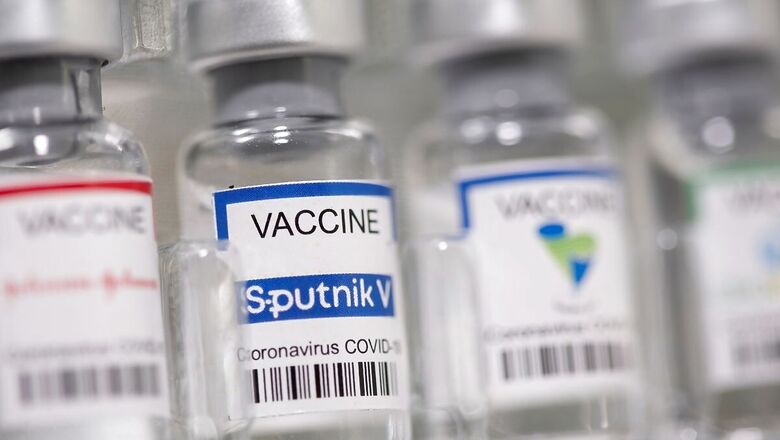
views
Makers of Russian vaccine Sputnik V on Thursday urged the other manufacturers to join hands to produce vaccine cocktails against the COVID-19. The Russian Direct Investment Fund (RDIF) said it had began “mix and match” trials with AstraZeneca in February and will be announcing more collaborations soon to test the efficacy of vaccines after mixing.
The Sputnik V vaccine has been produced using a combination of two adenoviruses. Sputnik V had offered Ad26 shot to AstraZeneca for clinical trial to check efficacy on mixing the vaccines.
Vaccine cocktail advocates, we were the 1st to start joined trials with AstraZeneca in February and will be announcing more collaborations soon. We urge other vaccine producers to join forces with us for mix & match trials. This is the way to immunity for the global community! https://t.co/SVToGxysmH— Sputnik V (@sputnikvaccine) July 15, 2021
“We expect to release the results of Sputnik V and Astrazeneca mix and match by the end of July. This approach has been really pioneered by Sputnik V in the beginning,” RDIF’s CEO Kirill Dmitriev said on Tuesday.
Efficacy of Sputnik V is 97.6 per cent based on the analysis of data on the coronavirus infection rate among those in Russia vaccinated with both components of Sputnik V from December 5, 2020, to March 31, 2021, RDIF said.
The Gamaleya Center is also studying emerging variants of SARS-CoV-2 to access efficacy of Sputnik V against new strains as the virus is still evolving in various parts of the world
Meanwhile, the World Health Organisation has urged caution on this, although multiple tests have tried to explore the benefits of ‘mixing and matching’ Covid vaccines. WHO Chief Scientist Soumya Swaminathan has termed any strategy not founded on scientific evidence as a “dangerous trend”. “We are in a bit of a data-free, evidence-free zone as far as ‘mix-and-match’” is concerned, she said.
According to reports, Swaminathan’s concern stemmed mainly from a lack of data on mixing of the two vaccines in question. “There are studies going on; we need to wait for that and maybe it will be a very good approach but at the moment we only have data on the Oxford AstraZeneca vaccine followed by Pfizer,” Swaminathan said.
There have been multiple studies on combining the Oxford–AstraZeneca and the Pfizer–BioNTech shots that have found that such a move “triggers an immune response similar to — or even stronger than — two doses of either vaccine”.
So while there is a case being built up for mixing vaccines, there is a need for strong data before any such strategy is adopted. Further, shots should be mixed only upon advice of public health officials and individuals should not take such a decision on their own.
Read all the Latest News, Breaking News and Coronavirus News here.



















Comments
0 comment